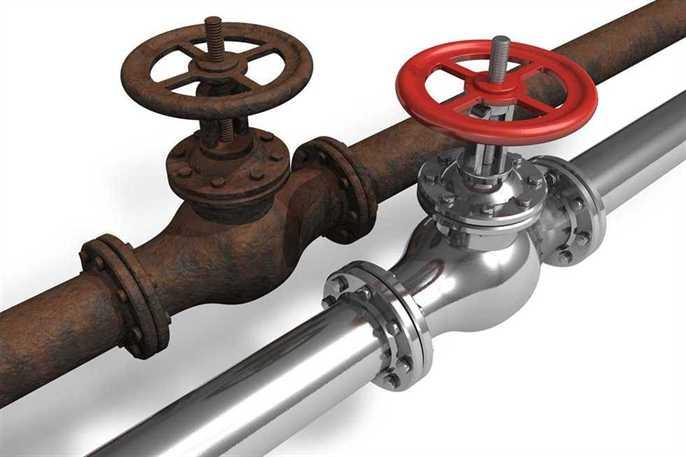 Replacing the plumbing in your entire house is a costly proposition – there’s no two ways about it. Understanding whether or not you need to replace your plumbing means knowing a bit about why pipes get damaged in the first place, the lifespans of different pipes, and how you should diagnose and treat plumbing problems.
Replacing the plumbing in your entire house is a costly proposition – there’s no two ways about it. Understanding whether or not you need to replace your plumbing means knowing a bit about why pipes get damaged in the first place, the lifespans of different pipes, and how you should diagnose and treat plumbing problems.
That’s a lot of information, so let’s get to it:
Why plumbing fails
Plumbing fails for the reason that most systems fail over time – wear and tear. Pipes are built to be corrosion-resistant (for obvious reasons), but corrosion resistance is not corrosion immunity – time makes fools of us all. The water in your pipes doesn’t have a neutral pH; there’s some degree of hardness to it. Over time, this can corrode even the strongest pipes.
This corrosion happens very slowly – there’s slight internal pitting for some time before the pipe will spring an actual leak.
There’s also the problem of sediment build-up. Over time, minerals can start to clog up your pipes. This clogging leads to an increase in pressure, as the diameter of the pipe shrinks. This increased pressure seldom causes pipes to burst, but if they’ve already been weakened by corrosion, it can become a perfect storm scenario.
How long does plumbing last?
For this, we’ve got some pretty concrete numbers – though fortunately, very little concrete plumbing (who wants cement pipes?)
Supply line lifespans
| Material | Lifespan |
| Brass | 80-100 years |
| Galvanized steel | 80-100 years |
| Copper | 60-80 years |
Drain line lifespans
| Material | Lifespan |
| Cast iron | 80-100 years |
| PVC | 20-40 years |
Of course, these are just guidelines for how long your plumbing will last – a variety of factors, from frequency of use to water hardness can affect these numbers.
Signs of plumbing failure
There are a number of signs that your pipes are nearing the end of their lifespan. Leaks are the most obvious sign; not all pipes are exposed, so you might find these leaks in the form of damp baseboards or wet spots on your wall.
Discoloured water is a sign that corrosion has started to leach metal from your pipes into your water. Low water pressure may be a sign that there are leaks. Strange noises in your pipes could mean sediment build-up. All of these things could mean your pipes are due for a replacement.
Of course, these things don’t necessarily mean you need to replace your pipes. Sediment can be readily cleaned out, and sometimes leaks can be fixed without replacing a whole section of pipes. When you notice any of these signs, call our plumbers in Winnipeg to do some diagnostic work for you.
Fixing fixtures
Low water pressure, strange sounds, clogs – while these things can be signs of broad systemic failure, they’re more often signs that a particular fixture is in need of maintenance. It’s much less expensive to replace a toilet, or even a water heater, than it is to replace a whole section of plumbing. During our diagnostics, we’ll determine if the problem is in a fixture instead of the pipes – and if it is, we’ll fix that instead, saving you time and money.
We also service hot water tanks in Winnipeg.
